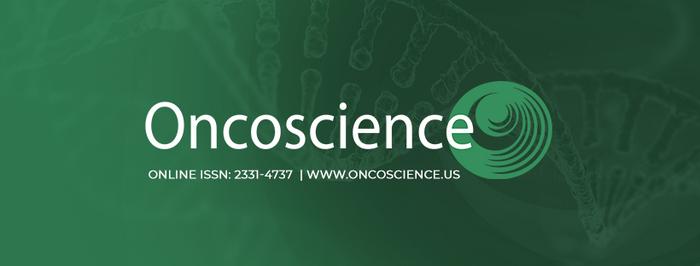Exploring oncogenic driver molecular alterations in Hispanic/Latin American cancer patients
“[…] this editorial underscores the complex molecular diagnosis landscape of cancer in the [Latin American] population.” Credit: 2024 Parra-Medina. “[…] this editorial underscores the complex molecular diagnosis landscape of cancer in the [Latin American] population.” BUFFALO, NY- May 3, 2024 – A new editorial paper was published in Oncoscience (Volume 11) on April 22, 2024, […]

“[…] this editorial underscores the complex molecular diagnosis landscape of cancer in the [Latin American] population.”

Credit: 2024 Parra-Medina.
“[…] this editorial underscores the complex molecular diagnosis landscape of cancer in the [Latin American] population.”
BUFFALO, NY- May 3, 2024 – A new editorial paper was published in Oncoscience (Volume 11) on April 22, 2024, entitled, “Exploring oncogenic driver molecular alterations in Hispanic/Latin American cancer patients: A call for enhanced molecular understanding.”
In this new editorial, researcher Rafael Parra-Medina from Fundación Universitaria de Ciencias de la Salud and Instituto Nacional de Cancerología begins by discussing Latin America’s (LA) population — a heterogeneous mix of Amerindian, African, and Caucasian ancestries with different proportions in different regions. Countries such as Argentina, Brazil, Colombia, Costa Rica, Uruguay, and Venezuela have a higher proportion of Caucasian while regions in Mexico, Perú, and Bolivia have a higher proportion of Amerindian ancestries. Although the overall incidence of cancer in Latin American countries is generally lower compared to high-income nations, the mortality rate is notably higher.
“This disparity can be attributed to several factors, including smoking habits, diet quality, levels of physical activity, access to healthcare services, and availability of cancer screening programs [3].”
While advances in the understanding of oncogenic molecular alterations have led to targeted therapies improving outcomes, the diversity in this population poses unique challenges. The prevalence of mutations as lung cancer patients, for instance, varies significantly across different ethnic groups, indicating the need for tailored approaches in diagnosis and treatment.
“Therefore, we need to enhance molecular diagnostic, molecular research, and healthcare cancer patients access in LA is crucial for the effective management, reflecting the need for more personalized and region-specific medical interventions.”
Continue reading: DOI: https://doi.org/10.18632/oncoscience.597
Correspondence to: Rafael Parra-Medina
Email: rafa.parram@gmail.com
Keywords: Latin America, Hispanic, cancer, molecular, lung
About Oncoscience:
Oncoscience is a peer-reviewed, open-access, traditional journal covering the rapidly growing field of cancer research, especially emergent topics not currently covered by other journals. This journal has a special mission: Freeing oncology from publication cost. It is free for the readers and the authors.
To learn more about Oncoscience, visit Oncoscience.us and connect with us on social media:
- X, formerly Twitter
- YouTube
For media inquiries, please contact media@impactjournals.com.
Oncoscience Journal Office
6666 East Quaker Str., Suite 1D
Orchard Park, NY 14127
Phone: 1-800-922-0957, option 4
###
Journal
Oncoscience
DOI
10.18632/oncoscience.597
Method of Research
Commentary/editorial
Subject of Research
People
Article Title
Exploring oncogenic driver molecular alterations in Hispanic/Latin American cancer patients: A call for enhanced molecular understanding
Article Publication Date
22-Apr-2024
What's Your Reaction?

































